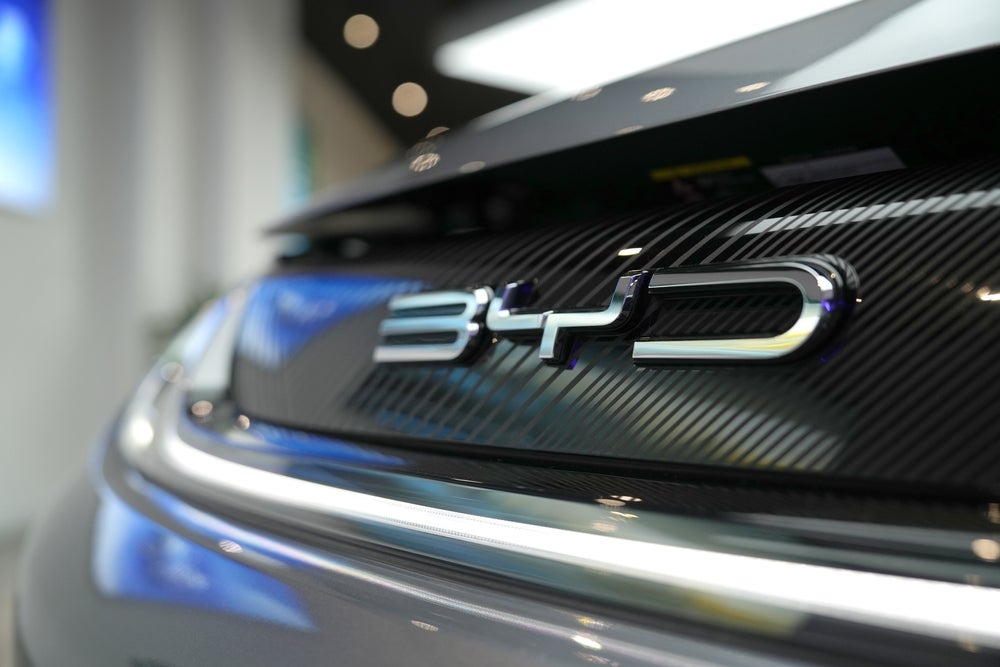
Cheap electric vehicles from China are making significant inroads into Europe, posing a threat to one of the region’s largest industries, according to a report in Bloomberg.
BYD Co, which surpassed Tesla Inc as the biggest global EV maker late last year, plans to elevate the competition with its Seagull hatchback, set to launch in Europe next year. Offering premium features like a rotating touch screen and wireless phone charging, the Seagull sells for under $10,000 in China. Despite tariffs and modifications for European standards, BYD expects to sell the Seagull for less than €20,000.
This pricing strategy positions the Seagull well below electric models from companies like Stellantis NV and Renault SA, which are crucial for these automakers’ transition to electric vehicles. The impending launch of the Seagull increases pressure on European automakers to maintain their market share in the evolving post-combustion engine era. An ongoing anti-subsidy investigation by Brussels is unlikely to mitigate this challenge.
“We are looking very closely at this model and others coming from Chinese EV makers,” said Martin Sander, head of Ford Motor Co.’s European EV business. “Of course, we are nervous when new competition is coming to the market,” he told Bloomberg.
The Seagull has been praised for its build quality, design, and technology. BYD plans to introduce a higher-end €25,000 EV before launching the Seagull in Europe, according to Michael Shu, BYD’s European Managing Director, speaking at an industry event in London. Additionally, BYD’s plans to establish two plants in the region will help it navigate potential European Union tariffs.
Mexican Seagulls
The Seagull has already seen success abroad. In Mexico, where it is called the Dolphin Mini, the vehicle has attracted significant interest despite the country’s nascent charging infrastructure. “Mexico is not great for us, but in the end we found a lot of demand, a lot of heat for this,” said BYD Executive Vice President Stella Li during an event unveiling a plug-in hybrid pickup for the Mexican market, Bloomberg reported.
Access the most comprehensive Company Profiles on the market, powered by GlobalData. Save hours of research. Gain competitive edge.

Thank you!
Your download email will arrive shortly
We are confident about the unique quality of our Company Profiles. However, we want you to make the most beneficial decision for your business, so we offer a free sample that you can download by submitting the below form
By GlobalData
BYD leads a wave of Chinese automakers increasingly targeting exports after dominating their domestic market. Tesla CEO Elon Musk warned in January that Chinese carmakers could “pretty much demolish” most competitors if trade barriers aren’t established.
Trade war?
While US President Joe Biden has increased duties on Chinese EVs, effectively blocking imports, Europe faces a more complex situation. European carmakers rely heavily on the Chinese market, making them vulnerable to retaliatory measures. Beijing recently hinted at imposing tariffs up to 25% on imported cars with large engines, which would significantly impact companies like Mercedes-Benz Group AG and BMW AG.
Europe’s strategy to phase out combustion-engine cars requires affordable EVs to encourage mass adoption. The EU’s investigation into China’s EV industry is nearing a decision on raising tariffs, though some industry experts caution against protectionism. “Tariffs should not be used to shield our lead manufacturers from meaningful competition,” said Julia Poliscanova, senior director for vehicles and e-mobility supply chains at Transport & Environment.
BYD, founded in 1995 and initially a battery manufacturer, expanded into automobiles in 2003. It started selling passenger cars in Europe three years ago and has been making waves at auto shows in Paris and Munich. Despite a 23% decline in 2023, BYD shares have risen 9.6% this year, Bloomberg reported.
European carmakers are considering alliances to counter the challenge. Renault is seeking partners to reduce costs on a small-car platform while Stellantis will begin selling vehicles made through its joint venture with China’s Zhejiang Leapmotor Technologies Ltd in September.
“We have no intention to let this price band open for our Chinese competitors,” said Stellantis CEO Carlos Tavares, dismissing calls for tariffs. “We don’t think that protectionism will give us a long-term way out of this competition,” Bloomberg reported.
Stellantis’ partnership with Leapmotor, formed in October, leverages China’s cost advantages and advanced EV technology. This alliance helps counteract the support Chinese EV makers receive from their government. While Chinese brands held around 7% of Europe’s electric market last year, Transport & Environment projects this could rise to 11% this year and 20% by 2027.
The Seagull’s impact is significant. Caresoft Global, a Michigan engineering firm known for evaluating vehicle quality and manufacturing techniques, praised the Seagull for its cost-effective construction. “Everyone in the industry should be talking about this car, seriously, because it’s quite a vehicle,” Caresoft President Terry Woychowski told Bloomberg.
Has the EU started a trade war with China?
VW warns against tariff hike on Chinese EVs
How German auto arrogance brought about Europe’s Kodak moment
How will Biden’s China tariff hikes affect European car financing?

